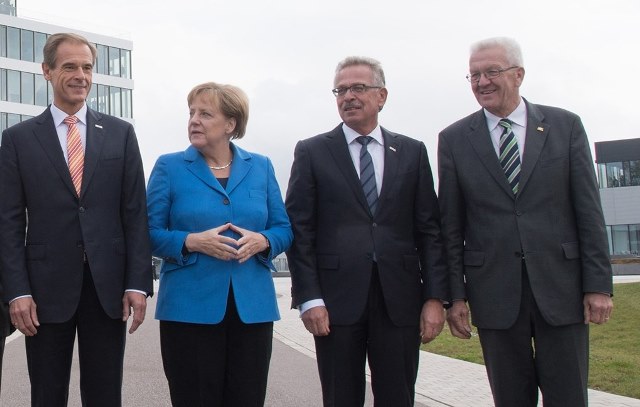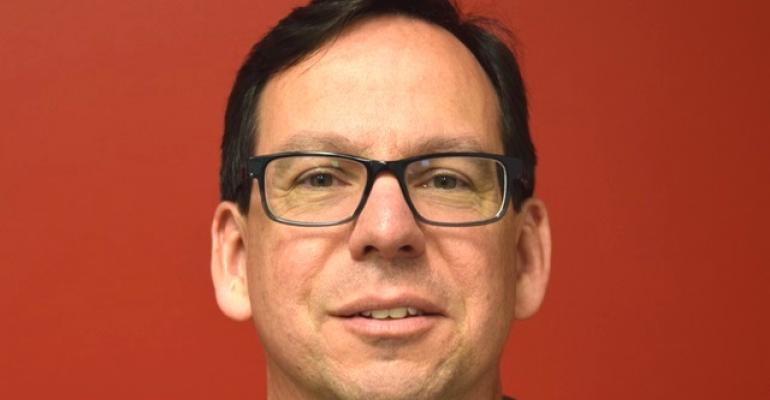RENNINGEN, Germany – It was inevitable. Invite 120 journalists from around the world to the dedication of a high-tech automotive research campus here, and there’s bound to be questions about the Volkswagen diesel scandal that has rocked the German auto industry to its core.
Oh, and the host company was Robert Bosch, which supplied the electronic-control module that VW admits altering so diesel engines would appear squeaky clean during emissions tests but spew toxins into the air during everyday driving.
An apologetic Michael Horn, president and CEO of Volkswagen Group of America, testified recently before a House Committee that the automaker’s investigation into the matter is only beginning. VW says it is cooperating with authorities and is determined to bring vehicles into compliance and make things right with customers.
Damage to the market prospects for diesel engines, both in the U.S. and abroad, may be irreparable, so it’s natural to seek out a comment from Bosch. As an early proponent of high-pressure common-rail fuel injection, Germany’s largest auto supplier has campaigned aggressively for 15 years on behalf of modern diesel engines.
Bosch Chairman Volkmar Denner responds as best he can to some of the questions at the packed press conference Wednesday, saying he’s seen no impact from the scandal on his company’s sales of diesel components.
“Yet the uncertainty which many consumers currently have, that uncertainty has to be eliminated very quickly through an active campaign in favor of the diesel engine,” he adds.
Denner also emphasizes that, despite VW’s actions, the supplier “has the technology to make diesel engines clean. Our own tests and several independent tests have also confirmed this without any doubt.”

Asked if Bosch has the technology to comply with stricter diesel emissions regulations in the event authorities adopt them, Denner says it really depends on the severity of any new mandates.
“One thing is for sure,” he says. “If the limits are tied to an unrealistic level which traditionally internal-combustion engines cannot meet anymore, then certainly neither consumers nor the industry will be able to benefit from that. In spite of our clear commitment to electric driving, we will still need the traditional internal-combustion engine.”
Denner says the auto industry and regulators have “been in close collaboration” for many years trying to develop more realistic driving cycles representing real-world fuel consumption.
In addition, even before the VW debacle, he says Bosch has been working on systems to accurately measure emissions during real-world driving, “not on portable test benches.”
Politicians Attend Bosch Celebration
German Chancellor Angela Merkel was an honored guest at the dedication of Bosch’s new research technology campus here, and she spoke about the importance of innovation to the country’s future.
But before she took the podium, Winfried Kretschmann, governor of the state of Baden-Württemberg, craftily ties his remarks to the importance of trust.
“Trust, of course, is our scarcest resource, and it’s really difficult to win it back,” he says. “This is something we can see when we take a look at the crisis at VW.”
Volkswagen is based in Wolfsburg in another state, Lower Saxony, so Kretschmann seemed eager to poke his neighbors to the north while propping up one of the biggest employers in his state, Bosch.
“And we hope that this is a one-time event, and with your research campus you showed that we are the innovators. We invest. We develop new technologies, and we don’t have to cheat.”
The harsh rhetoric surely sent a cringe throughout the Bosch management ranks. After all, VW remains a vital customer for the supplier.
Kretschmann then brings his remarks back to the future of diesels. “The big danger, of course, is that the diesel engine is discredited. This is something we have to avoid because we need it until we can roll out e-mobility in order to achieve the (carbon-dioxide) targets.”
Finally, in a scrum with TV cameras, Denner is asked if he sees a place for Syrian refugees in Germany’s auto industry. The country has welcomed some 700,000 Syrians fleeing the civil war in their homeland.
“As far as I hear so far, the education level (of refugees) is not so high, so we have to invest a lot in order to empower the people through adequate training,” he says. “But this we will do, so Bosch will also help them in order to achieve this level of training to get a job.”
The supplier merely wanted to celebrate the opening of an important research hub here, near Stuttgart, that includes 14 all-new buildings and cost some €310 million ($354 million), but news cycles can’t be contained or predicted.
Years from now, it will be interesting to see which story ultimately had the greatest impact on Germany: VW’s diesel scandal, the influx of Syrian refugees or the founding of a Stanford-like innovation incubator that crosses multiple industries and ties in business with universities.




